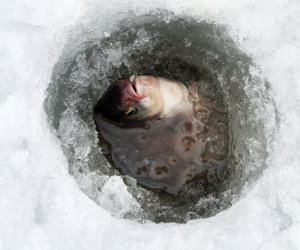Why You Need Water When Taking HCG Drops
The HCG diet is lower in calories and carbohydrates than a typical low-calorie diet. When carbohydrates are restricted, the body initially uses its storage form of carbohydrates for fuel. Along with the water needed to process stored carbohydrates, the body also uses a large amount of water to metabolize body fat. That used water needs to be replaced in order to avoid the consequences of dehydration. If the body becomes dehydrated, metabolism will slow down and electrolytes will become unbalanced. Despite taking HCG drops, the body will begin retaining water and the rate of fat loss will slow way down.Water retention is often a sign that you are not drinking enough water. It is not a signal that you are drinking too much. In addition, constipation can also become a serious problem. Both of these issues can make the number on the scale refuse to budge, or it can even increase. When that happens, a dieter might be tempted to think the HCG drops are not working, but the real culprit is not the diet. It is a lack of water.
Drinking enough water is necessary for proper digestion. Water contributes to the essential formation of a good balance of micro flora in the stomach and intestines, but it is also necessary for proper metabolism and helps to control appetite. Without enough water, the body will often confuse the signals between thirst and hunger. A dieter can feel hungry when the body is actually thirsty. Keeping the body well hydrated will help alleviate the urge to snack or eat inappropriately.
Since the goal of taking HCG drops is to lose body fat as quickly as possible, following Dr. Simeons' protocol will release a large number of toxic substances that were stored in the body's fat cells. These toxins need to be processed by the liver and flushed out of the body. Without enough water, the liver cannot do its job properly, so it is essential that a dieter drink enough water every day. In fact, drinking plenty of water is one of the most essential tasks a dieter can do when following the HCG diet.
Although standard dietary advice often recommends drinking a minimum of eight cups of water per day, most people on HCG drops need quite a bit more than that. The correct amount of water to drink is to take your current weight in pounds and divide that number in two. Convert that new number into ounces, and that is how much to drink. For example, if a dieter weighs 180 pounds, half of that number would be 90. The dieter should drink a minimum of 90 ounces of water per day, not just 64. That will ensure that the body has enough fluids to maintain a good metabolic level, flush out toxins and help the dieter reach their fat loss goals as quickly as possible.
